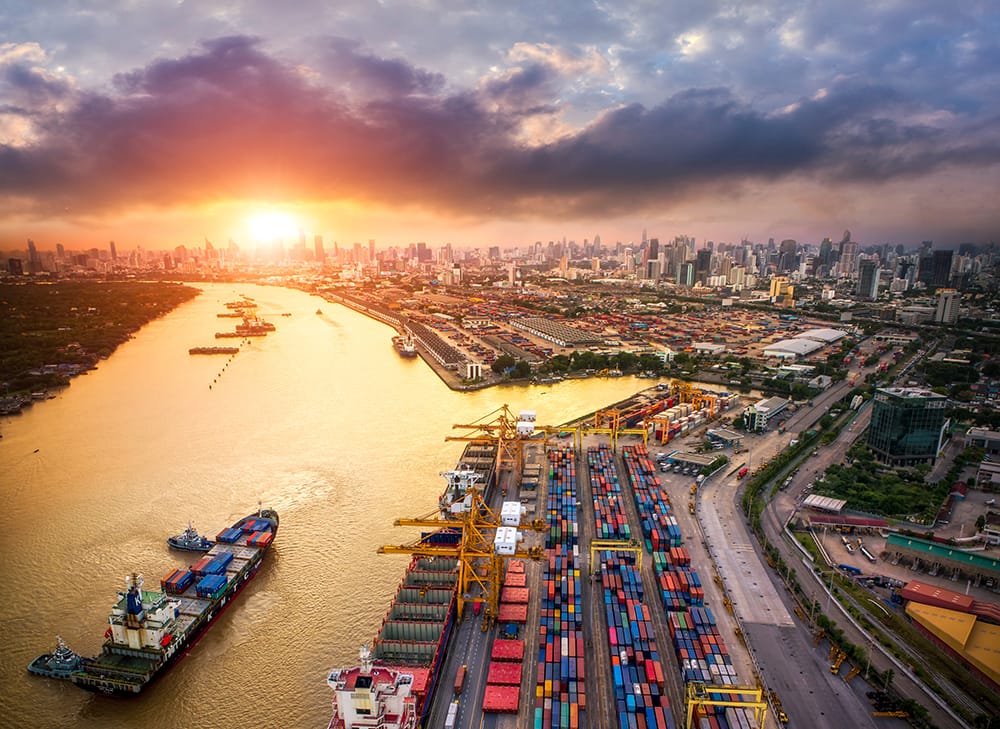
Globally the shipping industry is a major contributor to the production of greenhouse gases. This goes largely unnoticed when ships are on the high seas, but where shipping and civilisation come into close contact, such as in major port cities and on navigated rivers, governments and residents are increasingly concerned by the levels of air pollution that shipping causes.
While land-based pollution sources are being successfully curbed and reduced across the world, the level of sulphur oxide, nitrogen oxide and particulate matter pollution caused by international shipping trade continues to rise as the volume of shipping activity goes up.
Inland cities such as Cologne, on the Rhine in Germany, or Rotterdam in The Netherlands, Europe’s largest port, are particularly prone to suffering from air quality issues caused by water-based emissions from burning shipping fuel oil. In fact The Umweltbundesamt, the federal agency for environmental protection in Germany, states that in some major German cities river pollution is responsible for up to 30% of the total air pollution.
So what if those ships could be adapted to run on a cleaner energy source instead? The use of liquid natural gas is one possibility, as is the development of low-sulphur fuels. These approaches are thought to be able to reduce harmful emissions by more than 80%.
Another highly-feasible solution would be the use of hydrogen fuel cells to virtually eradicate these harmful emissions when ships are close to built-up areas on land. Smaller river ships and barges are capable of running solely on the new generation of hydrogen fuelling systems, which are developing rapidly. Refuelling stations can quickly swap out or refill hydrogen tanks just in the same way they do with current fuel. Ocean-going ships can be adapted to use hydrogen power as part of a blended solution, switching to hydrogen fuel when close to land, whilst in port and when docking. Ships could also connect to fuel cell land power systems whilst they are docked. Ultimately, if the hydrogen fuel comes from a renewable source the target of sustainable and emission free fuel is achievable.
Hydrogen power relies on the safe storage of highly pressurised hydrogen fuel in ultra-strong and ultra-reliable pressure vessels. NPROXX has been producing similar pressure vessels for four decades – our products are at the heart of the rapidly changing world of transport. We are a world leader in the design and implementation of stationary and mobile hydrogen refuelling and onboard pressure vessel applications. To find out more please contact us.
Benefits of hydrogen power usage in shipping
- Eradication of emission of harmful gases
- Improve air quality in cities and built up areas
- Reduction in greenhouse gas emissions
- Easy re-fuelling processes, with modular infrastructure
- Cost-effective against other low-emission fuel solutions.